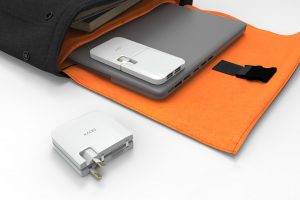After my story last week about cycling through Fairfax, Virginia (here) somebody commented that they thought it particularly sad that I carry around scans of photos from 19 years ago on my laptop.
Well, the truth is actually a lot worse than that! I am building a complete digital database of photos from the day I was born. Most of my photos from 1998 onwards have been taken on a digital camera (I’m an early-adopter); the preceding 29 years, however, are something of a larger project, involving scanning photos in different formats from multiple different sources. I gave up doing the actual scanning myself pretty quickly – discovering that there are perfectly reasonable services available that do it for you – but simply collecting the photos is proving a bigger task than I’d anticipated.
The final database will be somewhere in the region of 30GB – easily small enough to carry everywhere on my laptop (or even an iPod!) – although it will hopefully continue to grow for many years to come!
There are still a number of gaps in my database – years where I haven’t got around to collecting, sorting and scanning the pictures yet – but already I’ve noticed a slightly disconcerting phenomenon.
We all know that our memory is quite unreliable; and we’ve all grown-up in a world where photographs help us to hold-on to events in the past. Having many thousands of photos in a single database takes this a step further. Using Picasa I can scroll through my entire life in seconds from the start until now. Memories that were un-tethered suddenly fall into place, and, perhaps for the first time, I feel like I can make sense of life as a continuous experience rather than a collection of disjointed fragments.
Now imagine that all those photographs are tagged with the location where they were taken, (geotagging). Suddenly I can see my life documented in time and space … the time I spent in Cambridge; the move up-North; the move down-South; traveling around the World chasing design-wins; and it’s all connected.
This technology removes some of the mystery from our lives. Is this better, or worse? What do you think?
 Electronics Weekly Electronics Design & Components Tech News
Electronics Weekly Electronics Design & Components Tech News


It’s an intruiging vision, a bit God-like, and imagine if you could start to see how other people’s lives crossed your path in place and intersected in time.
Rather more prosaically, as we increasingly rely on the “cloud” of servers, for such services as Google’s Picassa, think what it means for a third-party to hold the repository of all your memories.. and the next year they decide to start “taxing” you…
“Nice life you’ve got there. Shame if anything should happen to the storage…”